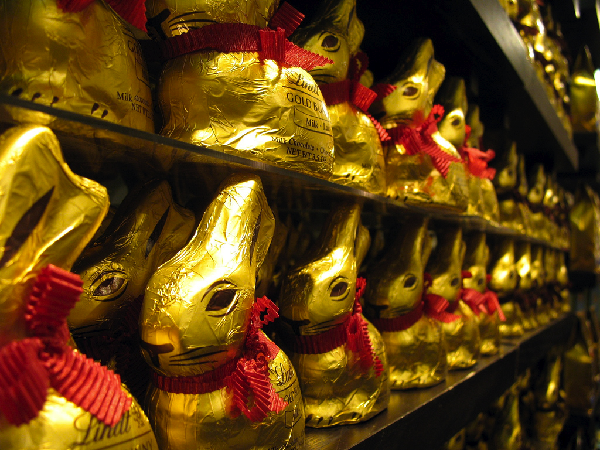Many of us are guilty when it comes to indulging our taste for sweets and chocolates, but it appears our excessive consumption is leading the world’s supply of chocolate to seriously dwindle.
Global production of cocoa and its by-products currently stands at around 2.74 million tons per year between America, Africa and Asia/Oceania. When this is compared to last year’s production of 4.36 million tons, it’s clear that a serious decline in production is taking place.
Chocolate consumption during the Easter period may well be higher than other holidays, but reports show that unrestrained consumption during throughout the year is the problem.
The world chews its way through approximately 7.2 million tons of chocolate and chocolate-related products each year, which equates to roughly one kilogram of chocolate per person per year.
According to a study by Euro Monitor International, Australia ranks 14th with an average share of 4.9 kilograms per person per year. European nations Germany, Switzerland and Austria take out the top spots, each consuming between 7.8 and 9 kilograms per person per year.
Another recent study found that the United Kingdom has reached 11 kilograms per person per year. Additionally, chocolate consumption in China has rapidly increased, leading to a rise in the price of cocoa beans.
At present, we’re consuming almost five million tons more than we’re able to produce each year. The rapid decline of ingredients necessary for producing chocolate has led some economists to predict the world will “run out” of chocolate between 2015 and 2020.
Economists are recommending that countries such as Australia cease exportation of chocolate and its ingredients to other countries to maintain local supply. Several several large companies are already stockpiling cacao products to ensure some future capacity for manufacture.
So, what would a global chocolate shortage mean for consumers? According to experts, there are three likely outcomes.
1. The price of cocoa will skyrocket.
As resources dwindle, the price of chocolate will rise. Cocoa prices have risen by 50 per cent in the last two years, and this looks set to continue as an increase in demand is met with a decrease in yield.
This increase in price could also steer consumers away from high quality, ethically sourced chocolate, which is often more expensive. An increase in Fairtrade chocolate has been a positive development for global sustainability and workers welfare. Even mainstream brands such as Cadbury have included more Fairtrade certified products in their range. However, consumers are often willing to forgive poor production conditions for cheaper products.
2. Chocolate will become a luxury good.
As the price of chocolate increases, it will no longer be considered an affordable treat. According to Alejandro Litovsky, founder of consultancy Earth Security Group, this is likely to happen in the near future. “In the next five years the price of chocolate will skyrocket, and we should think about it as very much a luxury,” he told The Guardian.
3. Chocolate will not taste the same as before.
The price of cocoa is so high that manufacturers cannot afford to produce chocolate with the same quantity of cocoa.
Editor of Kennedy’s Confection magazine, Angus Kennedy, told Mirror that the chocolate of the future would be nothing like the one we are used to. “Cocoa butter and cocoa are the most expensive ingredients in the product and will be replaced with cheaper ingredients like raisins and nougat,” he said. “[The future chocolate] will be much sweeter as sugar is the cheapest ingredient and can be used to hide the fact that there is less cocoa powder.”
Manufacturers may also turn to carob and other “filler” materials to save costs, which are already on the shelves but often marketed towards diet conscious consumers.
Cutting back on our excess consumption would ease the pressure on global markets and production. It would also encourage a healthier lifestyle whereby indulgences such as chocolate are reserved for special occasions, such as Easter.
Featured image by Tammy Green via Wikimedia Commons.
 Kieran Balmaceda is a third-year Bachelor of Strategic Communication student at La Trobe University. You can follow him on Twitter: @KieranBlam.
Kieran Balmaceda is a third-year Bachelor of Strategic Communication student at La Trobe University. You can follow him on Twitter: @KieranBlam.







